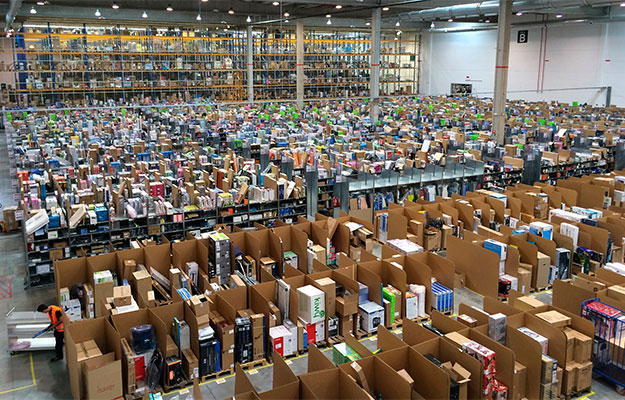Amazon Seeks FCC Permission For Super Secret Mobile Wireless Tests
Secret projects seemed to abound this past week. First, Facebook published job listings for their mysterious B8 team, and now Amazon is seeking permission from the Federal Communications Commission (FCC) for secret mobile wireless tests. Amazon claims that the issuance of an experimental license is in “public interest, convenience, and necessity”.
Amazon did not specify what it would be testing, but indicated that the prototypes were designed to support “innovative communications capabilities and functionalities”. Furthermore, former NASA astronaut and current Prime Air manager Neil Woodward has been listed as the main contact for the experiment. It is possible that the experiment is intended for a wireless communication systems for Amazon’s delivery drones.

The application states that Amazon’s experiments would begin indoors at its headquarters in Seattle. The tests would also incorporate "low-power, temporary fixed-base transmitters and associated mobile units indoors at and near its company facilities in Seattle, Washington." The experiment would then expand outside to a 120-kilometer radius surrounding its customer service center in Kennewick, Washington. Amazon only designated the rather large radius so that it will have more flexibility in location selection.
The document further explained that “The temporary base stations will typically transmit on average for only five minutes per hour per day per week on any specific channel or band”. The tests would be conducted over a five-month period. Amazon employees would be the only ones involved with the experiment and it would also recover all devices that fail to meet FCC requirements.

FCC experimental licenses help anyone, from lone individuals to major corporations, to try out new technology that may not necessarily comply with all of the FCC’s technical regulations or in frequency bands that may not be allowed to operate in. The FCC’s technical staff reviews the project in order to ensure that it will not be harmful to others. Most requests are usually approved within a few weeks.
Amazon did not specify what it would be testing, but indicated that the prototypes were designed to support “innovative communications capabilities and functionalities”. Furthermore, former NASA astronaut and current Prime Air manager Neil Woodward has been listed as the main contact for the experiment. It is possible that the experiment is intended for a wireless communication systems for Amazon’s delivery drones.

The application states that Amazon’s experiments would begin indoors at its headquarters in Seattle. The tests would also incorporate "low-power, temporary fixed-base transmitters and associated mobile units indoors at and near its company facilities in Seattle, Washington." The experiment would then expand outside to a 120-kilometer radius surrounding its customer service center in Kennewick, Washington. Amazon only designated the rather large radius so that it will have more flexibility in location selection.
The document further explained that “The temporary base stations will typically transmit on average for only five minutes per hour per day per week on any specific channel or band”. The tests would be conducted over a five-month period. Amazon employees would be the only ones involved with the experiment and it would also recover all devices that fail to meet FCC requirements.

FCC experimental licenses help anyone, from lone individuals to major corporations, to try out new technology that may not necessarily comply with all of the FCC’s technical regulations or in frequency bands that may not be allowed to operate in. The FCC’s technical staff reviews the project in order to ensure that it will not be harmful to others. Most requests are usually approved within a few weeks.

